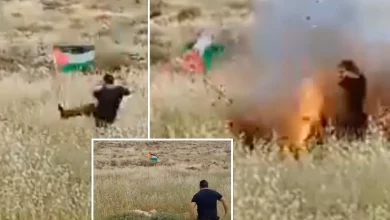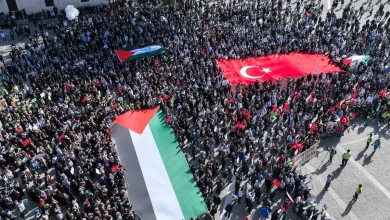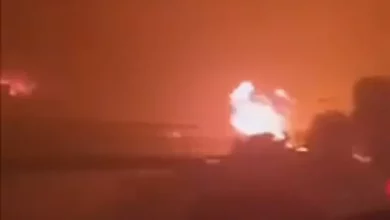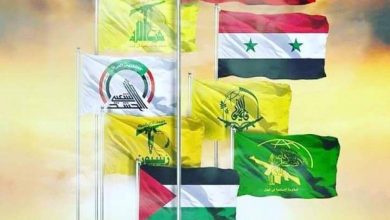Rouhani: New Residents of White House Continue Trump’s Crimes against Iranians
Iran’s outgoing President Hassan Rouhani said on Wednesday that the new US president and his administration continue the same crimes committed by Donald Trump against the Iranian nation through sanctions and economic terrorism.
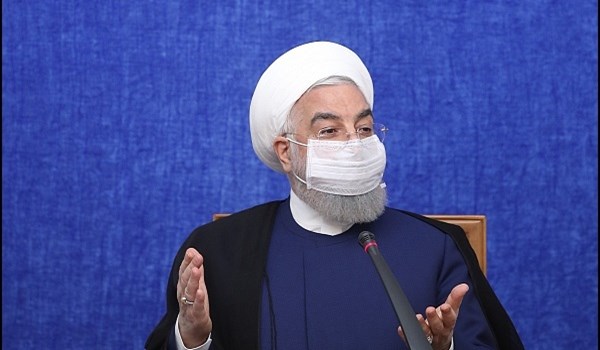
Trump’s successors have so far continued his crimes and economic terrorism against Iranians, and they are criminals on the same path founded by Trump, Rouhani said, addressing a cabinet meeting in Tehran.
The Zionist regime and its allies made the US withdraw from the JCPOA, imposing economic war against our country,” he added.
However, the resistance of the Iranian nation came to fruition when Biden, in his election campaign, acknowledged that Trump’s act was wrong and when Biden claimed that the US is committed to JCPOA revival, he reminded, recalling the US president’s earlier remarks when he had just ascended to power.
“The American people voted for the new US administration with the same idea and opinion, and if Biden drags his feet in the implementation of the nuclear deal, he has betrayed the vote of his own people, because they voted on this basis. And then they (the US officials) repeatedly emphasized that they agreed with the nuclear deal and wanted to return to the agreement, but still people expect this to happen as soon as possible,” Rouhani said.
He also stressed that the Iranian government will spare no efforts in this regard, also asserting that Iranians have never sought nuclear weapons.
Iranian Government Spokesman Ali Rabiyee said on Tuesday that Tehran is still waiting for the political decisions of other parties, specially the US, to decide about holding the next round of Vienna talks.
“Our views are very clear to all parties, and we are aware of their positions on differences. We have made it clear to all parties that all sanctions that violate or impede the full implementation of the JCPOA should be lifted. We also know what steps we should take if the United States takes this step and all parties reaffirm their commitment to the JCPOA,” Rabiyee told reporters in a press conference in Tehran.
“As for how the Vienna talks will continue, we will have to wait for the outcome of the meetings to become clearer,” the spokesperson added, saying, “The important thing is that the talks have reached a point where all parties have to make their own decisions. We are waiting for the other parties, including the United States, to announce their political decisions so that we can talk more clearly about the next round of talks.”
Asked about Iran-IAEA relations if the agreement between the two sides is not renewed, Rabiyee said, “Previously, the agreement between Iran and the IAEA was renewed due to the positive atmosphere and promising prospects for reaching an agreement.”
“We are considering the need and possibility of extending the agreement with the International Atomic Energy Agency, and we will consider all options in this regard. Iran’s relations with the IAEA will be based solely on safeguards if this agreement is not renewed, and the Islamic Republic of Iran will not make any further commitments,” he added.
“The law of the parliament regarding the obligations and duties of the government is quite clear and so far it has moved in the same direction. No decision has yet been made on the subject of the quarterly agreement with the Agency and how it will continue or not, and information will be provided as soon as a decision is made,” the spokesman said.
Also, last week, Iranian Deputy Foreign Minister and top negotiator Seyed Abbas Araqchi underlined that Tehran has already made its tough decision to save the agreement and the time is now ripe for other parties, specially the US, to act similarly to revive the deal.
“The Islamic Republic of Iran has already made its tough decision. When the United States quit the JCPOA and Iran decided to stay in it, this was Iran’s big and tough decision, which has kept the JCPOA alive up to the present,” Araqchi said.
Iran’s top negotiator in the Vienna talks added that it is now the other parties’ turn, and they must decide in view of the negotiations that we held thus far to reach a final conclusion on how to revive the JCPOA, so that the two sides could reach an agreement.
He noted that Iran and the remaining signatories to the JCPOA have so far held six rounds of negotiations in Vienna to that end and have “almost reached final stages”.
“There are still outstanding issues Iran and the G4+1 group of countries have held adequate discussions about and now the time is ripe for the other side to act,” Araqchi said.
The US, under former President Donald Trump, left the nuclear deal in 2018 and initiated a “maximum pressure” policy against Iran, prompting Tehran to take remedial measures by gradually reducing its nuclear commitments under the deal.
Meantime, last week, Iranian Foreign Ministry Spokesman Saeed Khatibzadeh underlined that it is now time for the US to make up its mind and return to the Joint Comprehensive Plan of Action (JCPOA) by lifting illegal sanctions and effectively implementing its final commitments.
Khatibzadeh made the remarks in reaction to recent allegations by the US and French officials who said they are waiting for Iran to go back the deal.
He stressed that Iran has never left an international agreement, and said, “The US and the Europeans know best that Iran made its decision by remaining in the agreement and made it survive when the US unilaterally withdrew from the JCPOA and imposed illegal and oppressive sanctions against the Iranian people.”
He emphasized that Iran’s position has not changed since the beginning of the Vienna talks, and said, “We demand the lifting of US sanctions, their verification and then the cessation of compensatory measures and the resumption of Iran’s commitments.”
The US, under former president Donald Trump, unilaterally withdrew participation in the agreement and re-imposed sanctions against Iran, which the accord had lifted.
The Trump administration subsequently launched what it touted as a campaign of “maximum pressure” against Iran, hoping to force the Islamic Republic to accept large-scale limits on its nuclear program and missile work, among other things.
The administration of US President Joe Biden has verbally renounced that policy and admitted to its failure, while expressing a willingness to return to the Iran deal. However, it has so far stopped short of taking any concrete steps to that end and retained the sanctions on the Islamic Republic.


